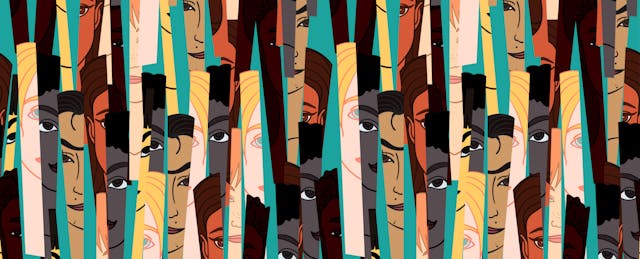My wife and I made a vow before becoming parents to be strategic and intentional with the images, songs and information our children were exposed to. In a world constantly at war with itself regarding the truths and falsified narratives powered by the clicks and scrolls of our digital devices, it was important to establish an intellectual foundation built on love, humanity and respect for all before introducing them to more complex issues like bigotry and hatred.
With the recent death of George Floyd, America has re-engaged in a recurring dialogue about racism, equality, injustice, systematic prejudices and unconscious bias present in our society. As educators, it is imperative that as we are drawn into conversations with our family, loved ones, colleagues and the community, that we share the truths surrounding these issues and challenge others to reflect inwardly about their views regarding these facts. We must do so as our nation has approached a tipping point regarding its future on race and the development of systems that ensure equality, diversity and representation of all.
Historically, America has long been at war with herself on these issues. Well before the transatlantic slave trade and history of black integration into society, Native American and the indigenous peoples of North America were the first to experience horrific treatment from Europeans during the colonial expansion. Before Christopher Columbus sailed the ocean blue in 1492, North America had a people who were native to the land.
However, a bit of the context and significance of that injustice is lost today as historical realities fail to capture the attention of the masses in a society obsessed by consumerism. But what if Twitter, Instagram, Facebook and TikTok were present in those times? What if the images of hatred and cruelty were captured for all to see? Maybe then the images of smiling Native Americans showcasing their harmonious relationship with the Pilgrims that seem to reign synonymous with the Thanksgiving holiday would appear as “fake news.”
Whether due to an absence of knowledge or a lack of systems designed to inform, too often when the term “racism” is mentioned in America the images of shackled blacks being bought, sold, mangled and killed are the first to enter the minds. It is certainly true that blacks suffered more than 400 years of oppression in this country—and the clock is still ticking. But outside of mentions of slavery being abolished with the adoption of the 13th Amendment in 1865, where, in our widely produced and purchased K-12 curriculums, do we extensively discuss the economic and industrial successes and innovations that African Americans and other races contributed to society? Somehow our entire national historical account has been placed in the hands of commercial textbook publishers and standardized test designers, along with their perspectives and unconscious bias, for our youth to consume.
Furthermore, even as America abolished her slavery, documented racism and discrimination against Italians, Irish, Poles and other immigrants persisted. We certainly cannot forget about the history and societal contributions of Mexican Americans, Spanish Americans, all those who today would identify as a member of the LatinX community, Asian Americans, and Pacific Islander Americans. These races, too, experienced segregation, marginalization, harassment and death in an effort to drive the agenda of assimilation. Back then there were no hashtag movements, widespread nightly protests, and technologies to share these criminal acts and injustices.
So America, where does this leave us? Where do we go from here? How do we turn the corner and begin to eradicate once and for all the stench of hatred lingering in our society?
For one, we must accept the fact that the majority of us are ignorant of the facts associated with this conversation, and effectively determine a means of which to raise the bar of our knowledge base. We must accept the fact that the information shared with our children through textbooks and standardized tests have presented a limited snapshot of American history that, over time, has created a negative byproduct of race devaluing and low self-agency within the minds of some of our youth, which has consequently impacted their lifestyles and wellbeing, especially in socioeconomically challenged communities.
America must also realize that somewhere along the way we were blinded by consumerism and mistook the advancements of sports, pop culture, food, and entertainment as advancements in race relations, gender equality, and diversity and inclusion in our day-to-day society. Simply put, I may buy your music, or wear a jersey that bears your name, and still clinch my belongings when someone who bears your complexion passes by.
Following the death of George Floyd, with visuals of national protests easily accessible, my five-year-old son quietly asked me one night after dinner: “Daddy, why are those people mad?” Followed by: “What happened?”
In that moment I froze, but I also understood the importance of this teachable moment. As I prepared him for bed, I shared the importance of our family treating all people fairly, no matter how they look or where they come from. I also took the time to inquire about his understanding regarding race and gender equality.
I was amazed by his responses. He noted that in his kindergarten class, there are students of different colors, and some were brown like us. But no matter how they look, all of them are his friends. He also shared what he learned in his class about segregation, and how a long time ago, he wouldn’t be able to be in the same class as the “peach” and “white” people. But now he is happy that he can.
As he fell asleep for the night, I knelt down on the side of his bed, said a prayer, and contemplated the realities of the world that awaits my son. America, as beautiful as she is, has her imperfections and those imperfections should never cost someone’s children their freedom or even more importantly, their life.


